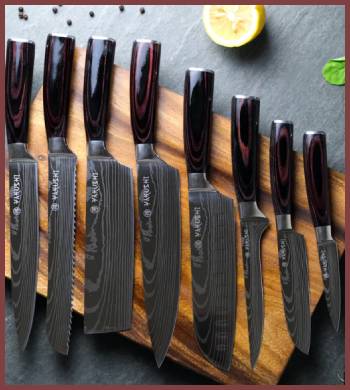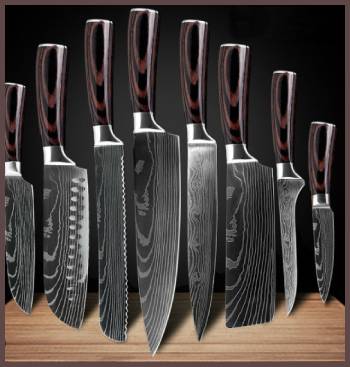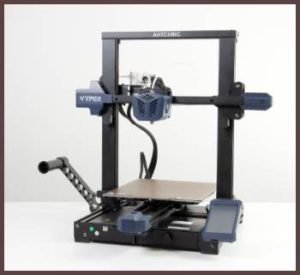When it comes to kitchen cutlery, a good knife is a game-changer. And while there are countless options on the market, few brands have made a significant impact like Yakushi Knives. Known for their premium quality, exquisite craftsmanship, and commitment to tradition, Yakushi Knives are a staple in the Japanese knife industry.
This review will provide an in-depth analysis of Yakushi Knives, highlighting their pros and cons, and answering the most frequently asked questions about Japanese knives.
The Lure of Yakushi Knives
Yakushi Knives have managed to capture the hearts of chefs and culinary enthusiasts alike. Their knives, forged by skilled artisans, exemplify the unique blend of tradition and technology. These knives are not just tools; they’re works of art, imbued with the spirit of centuries-old Japanese blacksmithing techniques.
But what sets Yakushi Knives apart, and why should you consider adding them to your kitchen arsenal?
Pros of Yakushi Knives

- Unparalleled Craftsmanship
Yakushi Knives are crafted from high-quality steel, with each knife going through a rigorous process before it reaches the customer. This painstaking attention to detail ensures that every knife from Yakushi not only meets but exceeds expectations.
- Exceptional Sharpness
Nothing can compare to the cutting experience a Yakushi Knife offers. Their blades are honed to razor-like sharpness, allowing for precise and clean cuts. This sharpness can dramatically improve your food preparation speed and efficiency.
- Longevity and Durability
Durability is a major advantage with Yakushi Knives. When properly maintained, these knives can last a lifetime, providing excellent value for money. The superior quality steel used in Yakushi Knives allows them to retain their edge for a considerable time.
- Ergonomic Design
Comfort is an essential factor to consider when choosing a knife. Yakushi Knives are designed with an ergonomic handle, which ensures a comfortable grip and minimizes fatigue during prolonged use.
Read More: About Lamson Vs. Wusthof Knife
Cons of Yakushi Knives

While Yakushi Knives excel in many areas, they do come with a few cons.
- High Cost
One of the most significant barriers to owning a Yakushi Knife is the cost. As they’re made from high-quality materials and involve an intricate production process, they tend to be more expensive than other brands.
- Requires Proper Maintenance
Due to the high carbon content of the steel, Yakushi Knives require regular maintenance to prevent rusting and dulling. Without proper care, these knives can deteriorate quickly.
- Not Suitable for Heavy-Duty Tasks
While Yakushi Knives are exceptionally sharp, they’re not designed for heavy-duty tasks, such as cutting through bone or frozen foods. This could lead to the blade chipping or breaking.
Frequently Asked Questions (FAQs)
Here are the answers to some common questions about Japanese knives.
The Santoku knife is the most popular knife in Japan. It’s a versatile knife that’s suitable for cutting, dicing, and mincing.
Absolutely. Japanese knives offer superior sharpness, precision, and craftsmanship. While they require some maintenance and are more expensive than some other knife types, their longevity and performance make them worth the investment.
Yes, Japanese knives are renowned for their quality. They’re made with high carbon steel, allowing them to maintain their edge for longer. The meticulous craftsmanship ensures each knife is made to the highest standards.
The oldest Japanese knife-making company is Aritsugu, founded over 400 years ago. Aritsugu is renowned for its excellent quality and craftsmanship, earning a reputation in Japan and worldwide.
Gordon Ramsay, the famous British chef, is known to use Henckels and Wüsthof knives. However, the choice of knives can vary depending on the chef’s preference and the specific task at hand.
The answer to this question largely depends on individual preference. However, German and Japanese companies are often cited for their superior craftsmanship. Brands such as Wüsthof, Henckels, and Shun are renowned globally. Of course, Yakushi Knives, as discussed in this review, also stand out for their exquisite quality and precision.
Read More: About Briggs & Riley Alternatives
Conclusion
Yakushi Knives embody the spirit of Japanese craftsmanship – precision, quality, and artistry. While they come with a higher price tag and require more care than some other options, their unparalleled sharpness, longevity, and ergonomic design make them a worthwhile investment for those serious about their culinary journey.
Like any other purchase, understanding your needs and preferences is essential when buying a knife. If you value the quality and don’t mind spending time on maintenance, then a Yakushi Knife may be the perfect addition to your kitchen.
The world of kitchen knives is vast and varied. But, in the grand scheme of things, a great knife – like those from Yakushi – is less about the tool and more about how it enhances your experience in the kitchen, turning everyday cooking into a form of art and expression. And that, in its essence, is the true allure of Yakushi Knives.



